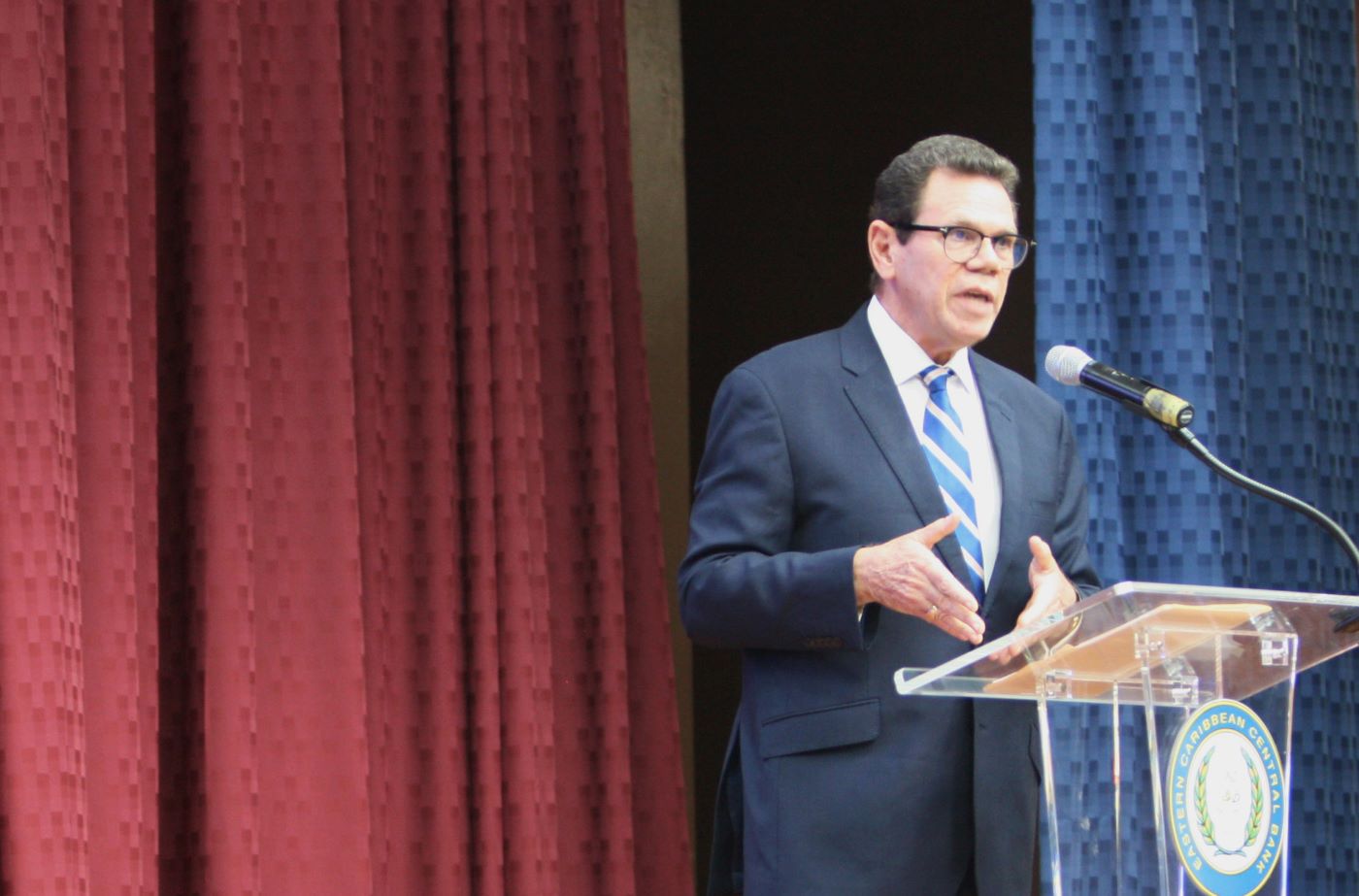CDB President calls for radical education reform to drive digital transformation

President of the Caribbean Development Bank (CDB), Dr Wm. Warren Smith, is calling for “a radical change” in the Region’s education system to equip people with the skills needed to capitalise on the digital age.
Speaking at the 34th Adlith Brown Memorial Lecture hosted by the Eastern Caribbean Central Bank in St. Kitts and Nevis on November 19, the CDB President stressed the need for digital skills and literacy as he outlined his vision for the Region’s digital transformation.
“The average citizen must be able to use technologies for learning, for working and for participating in society in a responsible, safe, and confidential manner.
As such, policymakers will need to prioritise the development of skills, including critical thinking, problem solving, and creativity that are required for 21st century jobs. Without this prioritisation, we risk falling behind as the proliferation of artificial intelligence, cloud computing, automation and other technologies render repetitive, routine, mechanical and time-consuming tasks redundant,” said Dr Smith.
He highlighted research which points to the changing nature of work, citing a 2018 World Bank study which estimates that by 2030, 65% of current primary school students will be engaged in jobs which presently do not exist.
“These findings point to an urgent need for an education strategy focused on training and retraining of the labour force to meet new job market requirements. We need a radical change in our education system. We must change what, how, and when people learn,” stated the CDB head.
He further highlighted studies on what some of these future jobs may look like; and these include data analysts, scientists, artificial and machine learning specialists, innovation professionals, e-commerce and social media experts, and robotics and software engineers.
The Bank President noted such changes could pose a challenge for the Caribbean if current trends in education were not addressed.
“These jobs will generally require an education with a high science, technology, engineering and mathematics (STEM) content, an area with traditionally low enrolment in the Caribbean. Strategic reforms are required to bring about radical shifts in human resource development and training. Policymakers, educators and the private sector must forge alliances to secure a match between labour market needs, curriculum development, training, and skills availability,” urged Dr Smith.
During the question and answer session following the lecture, the Bank’s President confirmed CDB’s willingness to support Borrowing Member Countries’ governments in such reforms:
“What we want to do is use our funding capacity to urge the education changes in the countries …. So in the same way that we are mainstreaming climate resilience in all of our projects…, we are going to also mainstream this new technological approach to education.”
Dr Smith sounded a call to the Region’s leaders and policymakers, urging them to enact “thoughtful, innovative approaches to transforming our education sector” so that the Caribbean’s future generations can benefit.
“[Education] needs a total revamp – the philosophy, the methods, the thinking – all need to be transformed so that we can be ready to work in the new environment,” he concluded.

